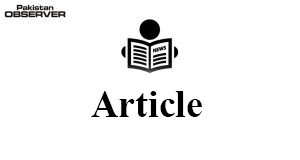Dr M Athar Khan
THE Qur’anic educational psychology is in effect the psychology of teaching, which is founded on the Qur’anic concepts of Man, Ilm, teaching, and principles and methods of teaching. This same view of the Qur’anic educational psychology permeates all aspects of teaching and learning in Madrassah. Accordingly the Madrassah conforms to the teacher centred philosophy, which puts the teacher or the institution in place to make decisions about what and how the student has to learn or become. The philosophy of teacher-centralism in Madrassah is founded on the verses of the Qur’an that defines and set limits to what, why and how things must be taught. The term what refers to the content that is prescribed to prepare the student to fulfill his responsibilities to Allah (SWT), (knowing and obeying all His orders), to oneself (knowing and following Awamir o Nawahi and use of what is Halaal and abstinence from all that is Haraam) and to the Ibaad (‘Huqooq-al-Ibaad’, which imply man’s responsibility to treat ‘all’ humans, animals, plants, all natural and manmade things which are of concern in man’s life in ways that ensure their care, safety and well-being, and maximization of their benefits to the individual and the mankind in general as it had been described in detail earlier under Ibaadah in the article-3.
Concept of Man: The learner in the Qur’anic psychology of teaching is unique in its attributive features, characteristics and qualities (“Surely We created man in the best mould”: Al-Teen:4): and that he has a certain mission (Just think when your Lord said to the angels: “Lo! I am about to place a vicegerent on earth”. Al-Baqarah:30) and purpose in life (“I created the jinn and humans for nothing else but that they may serve Me”: Az-Zariyat :56). Ilm denotes the capacity and capability of possession and acquisition of knowledge of things, and ability to use and practise it in all matters of life. Also knowledge as it is used in reference to Ilm describes only an aspect of it, as in its wholeness the word Ilm means more than the perceptible knowledge of things and objects as it also denotes knowledge of their constituent elements and the laws that govern them. In addition the word Ilm in Islam signifies strong religiosity and sanctity. In its other connotative meanings the word Ilm symbolizes light, power, consciousness and awareness. In Islam Ilm is considered and revered as an attribute of Allah (SWT) with which He has endowed the mankind so that the purpose of his creation is fulfilled. It is therefore, held as a matter of belief that Ilm as described herein is inherent in human nature both as capability and capacity to acquire, retain and use it as it is implied in his mission on earth and the purpose of his creation.
Teaching: The Qur’anic concepts of man and Ilm explained above and the verses (“Then Allah (SWT) taught Adam the names of all things” and presented them to the angels and said; “If you are right (that the appointment of a vicegerent will cause mischief) then tell Me the names of these things” (Al-Baqarah:31), and the verse, “They (the angels) said, “Glory to You: We have no knowledge except what You taught. You, only You, are All-Knowing, All-Wise” (Al-Baqarah:32), together define teaching in reference to Madrassah. In Islam, the word teacher has special significance. It is again a matter of belief that like Ilm, teaching is an attribute of Allah (SWT) with which He has endowed man as it is essential for his mission on earth as Khalifah. As indicated earlier capacity and capability of Ilm (possession and acquisition of knowledge of things) is inherent in man, and yet one has to be taught things as it is implied in the meaning and explanation of the Qur’anic verses referred to above. Same is the case with teaching. Notwithstanding the fact that capability of teaching is inherent in all human, it is still essential that together with possessing knowledge and skill of what one teaches, he must also demonstrate it in all his acts and deeds. In the modern sense it means that the teacher has to be a role model for whom and what he teaches as it is explicitly stated in the Hadith, “ His (PBUH) character was Qur’an).
Educational psychology as ‘psychology of learning’ in general is concerned with ‘learning behaviour of the learner,’ wherein the term behaviour includes the voluntary and purposeful activities of the learner that lead to his acquisition of knowledge or skills that has meaning and purpose for his own self. The Qur’anic educational psychology, as discussed earlier, is in effect ‘the psychology of teaching’, which is concerned more with the ‘teaching behaviour of the teacher,’ in which case the term behaviour of the teacher restricts and sets limits to his activities to conform to the Qur’anic concepts of Iq’ra, Ilm, Ibaadah and Kasab, which lie at the base of all aspects of Madrassah including teaching which is core of the institutional functions of the Madrassah.
—The writer is Prof & Advisor to the VC, Sarhad University, Peshawar.









